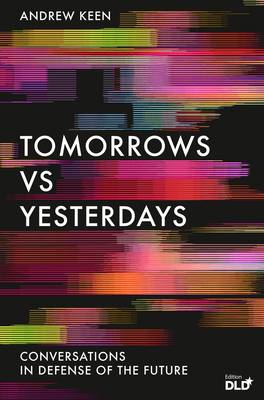
- Afhalen na 1 uur in een winkel met voorraad
- Gratis thuislevering in België vanaf € 30
- Ruim aanbod met 7 miljoen producten
- Afhalen na 1 uur in een winkel met voorraad
- Gratis thuislevering in België vanaf € 30
- Ruim aanbod met 7 miljoen producten
Zoeken
€ 20,95
+ 41 punten
Omschrijving
The current crisis of democracy, the growing economic inequality between rich and poor, our narcissistic social media culture and the looming menace of AI all threaten us as never before. The challenges presented by technology have long been central in these issues, but how can we take advantage of the opportunities it provides to shape a better 21st century? The most important division of our age is between the 'tomorrows', those who believe that the future can be better than the past, and the 'yesterdays' who harbor a nostalgic desire to return to a rose-tinted past. This division is encapsulated by how we answer a simple question: can we trust the future? In Tomorrows Versus Yesterdays, Andrew Keen discusses the issue with some of the most influential thinkers of our time. The book is split into four sections. The first identifies the challenges of our digital age. The second focuses on the failure of the internet revolution to realize its ambitious goals. The third untangles the complex relationship between populism and digital media, before the final part presents possible solutions to the challenges of our age. The result is an insightful examination of the most important issues facing us today, and essential reading for anyone interested in the impact of the digital revolution.
Specificaties
Betrokkenen
- Auteur(s):
- Uitgeverij:
Inhoud
- Aantal bladzijden:
- 304
- Taal:
- Engels
Eigenschappen
- Productcode (EAN):
- 9781838951122
- Verschijningsdatum:
- 1/08/2020
- Uitvoering:
- Paperback
- Formaat:
- Trade paperback (VS)
- Afmetingen:
- 152 mm x 231 mm
- Gewicht:
- 417 g

Alleen bij Standaard Boekhandel
+ 41 punten op je klantenkaart van Standaard Boekhandel
Beoordelingen
We publiceren alleen reviews die voldoen aan de voorwaarden voor reviews. Bekijk onze voorwaarden voor reviews.







